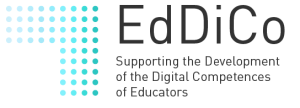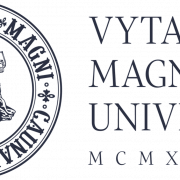Hello and welcome to the new version of the Learn to Analyze Educational Data and Improve your Blended and Online Teaching Massive Open Online Course (MOOC).
In the wake of the Covid-19 global pandemic, emergency remote teaching has become the new reality for school education around the world. As a result, educational data, that is the rich data footprint that students generate through their interactions in digital learning environments, has increased exponentially. This unprecedented crisis has brought to the forefront the urgent demand for Educational Data Analytics (EDA) as a key enabler to seize the opportunity, through the use of educational data generated during teaching and learning (including assessment), to better support individual learners in technology-supported remote teaching. Furthermore, online learning environments and education data-driven practice and assessment raise challenges such as ethical issues and implications, especially in terms of privacy, security of data and informed consent that should be addressed via transparent and well-defined ethical policies and codes of practices.
This MOOC aims to support the development of both core and advanced competences for Educational Data Analytics of Online and Blended teaching and learning.
The new version incorporates:
- gamification elements to offer enhanced engagement in several authentic learning activities;
- self-assessed assignments based on real-life scenarios to offer deeper understanding of the educational data field; and
- an upgraded assessment mechanism leading to two levels of Certification of Achievement on Educational Data Literacy (EDL). Level A requires the learner to have acquired a basic set of competences for EDL and Level B requires demonstration of a higher expertise assessed through hands-on assignments based on simulated practice scenarios.
It targets:
- e-learning professionals (such as instructional designers and e-tutors) of online and blended courses;
- school leaders and teachers engaged in blended (using the flipped classroom model) and online (during the COVID19 crisis and beyond) teaching and learning;
- higher education students (undergraduates & postgraduates).
It combines:
- theoretical knowledge on core issues related to collecting, analysing, interpreting and using educational data, including ethics and privacy, with
- practical experience of applying educational data analytics in three different e-learning platforms, namely, Moodle, the eXact Suite and the IMC Learning Suite.
The MOOC has been developed by an international Academia-Industry consortium within the action Learn2Analyze — An Academia-Industry Knowledge Alliance for enhancing Online Training Professionals’ (Instructional Designers and e-Trainers) Competences in Educational Data Analytics which is co-funded by the European Commission through the Erasmus+ Program of the European Union (Cooperation for innovation and the exchange of good practices – Knowledge Alliances, Agreement n. 2017-2733 / 001-001, Project No 588067-EPP-1-2017-1-EL-EPPKA2-KA). The European Commission’s support for the production of this publication does not constitute an endorsement of the contents, which reflects the views only of the authors, and the Commission will not be held responsible for any use which may be made of the information contained therein.



